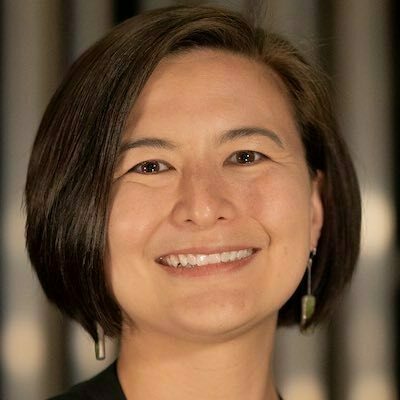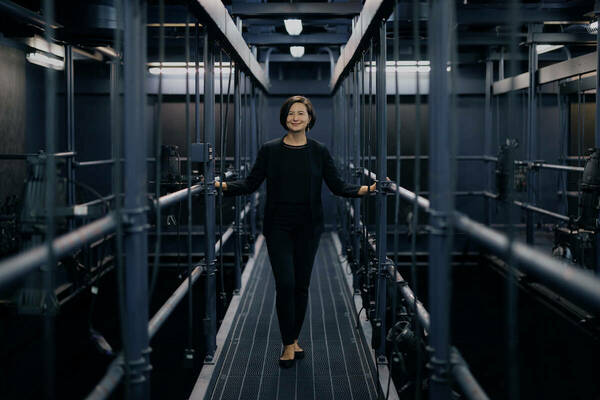Tarryn Chun, an assistant professor in the Department of Film, Television, and Theatre, has been selected by the National Committee on U.S.-China Relations to join a group of thought leaders focused on improving understanding and cooperation between the two countries.
She is one of 20 fellows chosen for the eighth cohort of the Public Intellectuals Program (PIP), which works to increase U.S. understanding of China by strengthening connections between academics, policymakers, opinion leaders, and the public.

Chun — whose expertise is in Chinese theatre and performance, as well as connections between Chinese theatre and technology — said she feels validated, gratified, and humbled by the selection.
The role of PIP is an important one, she said, especially considering the deterioration of U.S.-China relations during the COVID-19 pandemic.
“I think there's a lot of concern in the general public right now about China, especially over issues like military buildup and cyber security,” said Chun, who holds a concurrent appointment in the Department of East Asian Languages and Cultures and is a faculty fellow at the Liu Institute for Asia and Asian Studies.
“And that means that those of us who have expertise in China, and Chinese culture, have all the more responsibility to contribute to knowledge and understanding on both sides.”
A goal of the nonpartisan nonprofit’s fellowship program is to help Americans learn more about China than what appears on television news tickers. Chun said she looks forward to doing her part by sharing her research with a broader audience, for a broader impact.
“The importance of cultural diplomacy and cultural exchange and the extent to which theatre, film, music, and other arts create on-the-ground connections between people and cultures — that’s something I think I can contribute to the discussion,” she said.
In 2022, Chun won a National Endowment for the Humanities fellowship for her research project, “Spectacle and Excess in Global Chinese Performance,” which examines the use of digital technologies — including during the opening ceremonies during the 2008 and 2022 Olympics in Beijing — for artistic, commercial, social, and political ends.
Her fellowship and the resulting in-progress book mesh well with PIP’s consideration of China through a global lens.
Chun said she’s also interested in learning more about the ways in which a tech war between the U.S. and China could affect the performing arts. For instance, high-tech backstage theatre gadgetry uses technologies that the U.S. is restricting due to security concerns.
“This will start to influence the people I work with who are trying to make art using technologies that depend on these basic components,” she said.

The two-year PIP enrichment program began in early December in Washington, D.C., where the cohort of experts in politics, economics, security studies, culture, and history gathered to meet each other as well as policymakers, embassy officials, and thought leaders. During the next 18 months, fellows are slated to attend training on the West Coast, travel to the People’s Republic of China and other locations in Asia, and return to D.C. for another workshop.
Chun is the third Notre Dame faculty member to be chosen for the Public Intellectuals Program. Karrie Koesel, an associate professor of political science, was in the fourth cohort in 2014; and Kyle Jaros, an associate professor in the Keough School of Global Affairs who holds a concurrent appointment in the Department of Political Science, was in the seventh cohort in 2021.
“Once you're a PIP fellow you're always a PIP fellow,” Chun said. “The expectation is that one will continue to be a public intellectual and to use the platform we’ve gained to share our expertise.”
Originally published by at al.nd.edu on January 04, 2024.